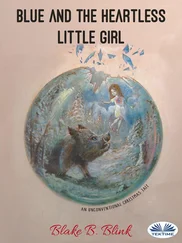Annie Randall White - The Blue and The Gray
Здесь есть возможность читать онлайн «Annie Randall White - The Blue and The Gray» — ознакомительный отрывок электронной книги совершенно бесплатно, а после прочтения отрывка купить полную версию. В некоторых случаях можно слушать аудио, скачать через торрент в формате fb2 и присутствует краткое содержание. Жанр: foreign_prose, История, foreign_edu, foreign_antique, на английском языке. Описание произведения, (предисловие) а так же отзывы посетителей доступны на портале библиотеки ЛибКат.
- Название:The Blue and The Gray
- Автор:
- Жанр:
- Год:неизвестен
- ISBN:нет данных
- Рейтинг книги:3 / 5. Голосов: 1
-
Избранное:Добавить в избранное
- Отзывы:
-
Ваша оценка:
- 60
- 1
- 2
- 3
- 4
- 5
The Blue and The Gray: краткое содержание, описание и аннотация
Предлагаем к чтению аннотацию, описание, краткое содержание или предисловие (зависит от того, что написал сам автор книги «The Blue and The Gray»). Если вы не нашли необходимую информацию о книге — напишите в комментариях, мы постараемся отыскать её.
The Blue and The Gray — читать онлайн ознакомительный отрывок
Ниже представлен текст книги, разбитый по страницам. Система сохранения места последней прочитанной страницы, позволяет с удобством читать онлайн бесплатно книгу «The Blue and The Gray», без необходимости каждый раз заново искать на чём Вы остановились. Поставьте закладку, и сможете в любой момент перейти на страницу, на которой закончили чтение.
Интервал:
Закладка:
But they found brave men ready to repel their assault. The Chickahominy had swollen to such a height that bridges were carried away in its mad rush. General McClellan had thrown the left wing of his forces across the stream, but it was impossible to get reinforcements to their help.
Both sides showed unexampled bravery. General Johnston moved on toward Richmond, six miles away, where he halted, for the purpose of striking the detached wing of the Union forces. The rise of the river had hampered the movements of the latter, and it seemed as if capture was certain.
The half-finished redoubts had been occupied by General Casey's division of Keys' corps, and although they rallied several times, it was in vain. The rebels, made a detour, and stole upon their rear, and they could no longer hold them. Their line was in danger.
Meanwhile General Johnston's evident intention was to bring up a heavy flanking force between General Casey and the river whose banks had risen so unluckily for the Federals, cutting off all hopes of reinforcements.
And now a magnificent exhibition of courage was shown by Sumner. He expected orders to go to the rescue, and his men were drawn up in line ready for the summons. One bridge alone remained with which to cross the river, and its approaches were under water. Some of its supports were gone, and as the soldiers stepped upon it, the frail structure swayed to and fro, mid the rushing waters, but they passed over as speedily and safely as though it were a solid piece of masonry.
General Sumner's appearance was most opportune. He met the flank attack, and was victorious. The slaughter was fearful. In this battle 12,000 men gave up their lives—5,000 Northern men, and 7,000 Southern.
General Johnston fell, a Federal shot having taken effect. He was carried off the field, and at first it was feared by the Confederates that his wound was mortal, but after some months of suffering and enforced retirement he recovered, and a year after assumed command of the Confederate forces of the Mississippi.
Ralph was sent with one of the details to bury the dead and bring in the wounded. Trenches were dug, and the dead piled in them. Many were left where the last shot had struck them down, and earth was heaped upon them. The ground was literally blood-soaked. The dead were everywhere—the battle-field was one vast graveyard, with its tenants left unburied.
Ralph entered a little log house in a pasture near the railroad, and seated himself on a bench for a moment's rest. Just outside the door, he found the dead and the wounded packed so close that he could scarcely avoid stepping on them. To distinguish them was a hard task, for the wounded lay there so quiet and motionless, fast in that silent resignation born of despair, that, save for the dull blackness that covered the faces of those from whom life had fled, it would be easy to mistake the living for the dead.
All sorts and ages were there, in one mass—the boy, who had gone from home, ardent and hopeful, the old man who had left the record of an honorable life behind him; officers who had cheered their commands on to victory, privates who had fought fearlessly—all lay there, while horses had fallen dead across their riders, or were struggling in agony. The picture was horrible! He was r e minded of h is duty by the voice of an old man, who came into the room where he was musing.
"This is a cruel war, sir!" he said to Ralph. "I've been raised here, man and boy, nigh onto seventy years, and I never thought, when I played in these fields, that I should ever live to see them desecrated with human blood."
Ralph raised his head, and looked at him earnestly.
"No," the old man continued, "I have looked for the coming of the Lord' these many years, but I never thought He would come in blood and smoke, and the noise of battle."
"What do you mean?" the boy asked, breathlessly. "How has the Lord come?"
"Has He not come to set human beings free? Is not the black man's bondage nearly over? Is not slavery doomed? Then the only blot upon the fair name of America will be wiped out. The North and South will become brothers again, and go hand in hand in all worthy undertakings. Thus, as one family again, they will march on, to a grand and glorious destiny."
"If my mother could hear him talk!" his listener thought. "What does he mean by the blacks being set free?" For the Proclamation of Emancipation had not yet been given to the world, and the position of the slaves during hostilities had not been settled.
"Are you a Northerner?" he asked the old man.
"No, I am a Southerner," with a tinge of pride in his tones. "How do you dare say such things?".
"I am an old man, and they call me childish and silly. But I love my country, and I want to see her truly great."
"Have you always talked in this way?" queried Ralph, puzzled at the old man's language and manners.
"Always. Oh, I have paid dearly for my opinions. I have had my house torn down over my head, I have suffered in my young days; but I have lost all I ever loved, and they pity me now. I know I shall live to see my prayer answered—that we may become a free and united country. Then I shall be ready to die. Yes, it comes to that with old and young. We must all be ready to die at any moment."
With a courteous nod to Ralph, he passed out of the door, and the boy was left alone.
"We must be ready to die at any moment!" The words sounded like a knell to Ralph. Was he ready to die? He had, been carefully nurtured by that blessing to a child, a praying mother, and his boyish days were spent in the Sabbath school. Like all in the springtime of life, death seemed afar off, something that would not approach him for many years. Death was the expected portion of the old, but he had always resolutely put aside all thoughts of a future that did not belong to this life.
Now these words came home like a shock. Was he ready? He had never been a bad boy, in any sense, but still he was not ready or willing to die. At that possibility his courage forsook him; memory went swiftly back to many a childish piece of wrong-doing, which, under the fear of death, he magnified into black and unpardonable sins. Filled with sorrow and repentance he fell on his knees on the hard floor of that little cabin, with the dead so near him, and cried—"Help, O Lord, or I perish!"
A wave of tender feeling swept over his soul, and his mother's favorite psalm, the 118th which she had read to him so often, came to his remembrance, and one verse was as music to him,—"The Lord is on my side; I will not fear. What can man do unto me?" He rose to his feet, refreshed and made strong.
CHAPTER X. CAMP FUN
THAT time should not hang heavy on their hands, much inventive genius was brought into play, and no schoolboys, famous for their ability in making up games, could equal these grown men in originating sports to fill in the hours that otherwise would have been exceedingly dull. Some such safety-valve was necessary, or else many would have broken down with memories of the dear ones at home, and the depressing sights of war, and its hardships.
The camp echoed often with the songs so dear to all who can be moved by tender thoughts. Many of the men were the possessors of rich, melodious voices, that brought many a thrill of delight to their listeners, in their tones.
Ralph had a fine voice, and to please his comrades he often sang the sweet old songs of childhood, while they listened with an enthusiasm and rounds of applause that many a prima donna could not have inspired. Throwing themselves around the blazing camp fire whose ruddy sparks flew heavenward, the whole company would join him in singing the melodies with hearty goodwill, and at those moments care and danger were forgotten. Now he would give them a plaintive, gentle ditty that would make the eyes of those brown-faced soldiers moist with emotion, as home pictures started into life before them, and then a stirring song of patriotism and victory would ring out, until the blood would leap in their veins, and each man there was ready to attack any foe single-handed.
Читать дальшеИнтервал:
Закладка:
Похожие книги на «The Blue and The Gray»
Представляем Вашему вниманию похожие книги на «The Blue and The Gray» списком для выбора. Мы отобрали схожую по названию и смыслу литературу в надежде предоставить читателям больше вариантов отыскать новые, интересные, ещё непрочитанные произведения.
Обсуждение, отзывы о книге «The Blue and The Gray» и просто собственные мнения читателей. Оставьте ваши комментарии, напишите, что Вы думаете о произведении, его смысле или главных героях. Укажите что конкретно понравилось, а что нет, и почему Вы так считаете.











